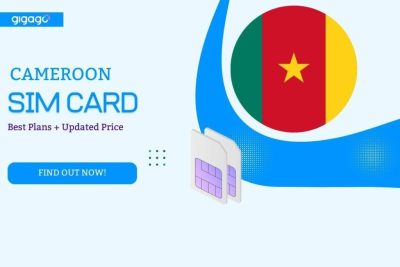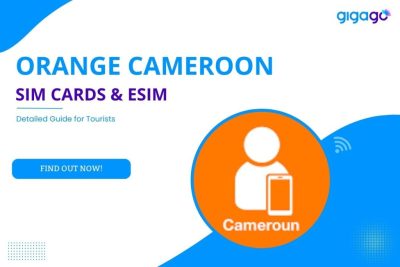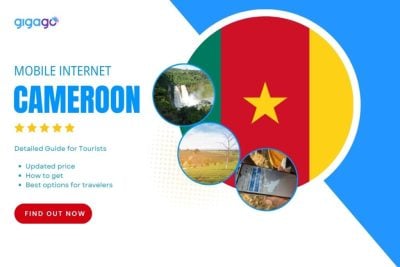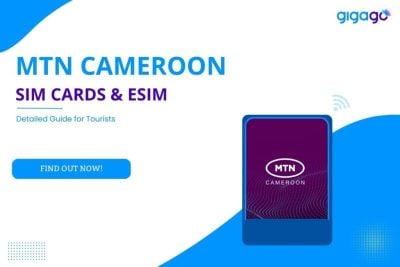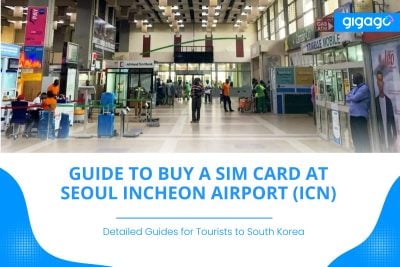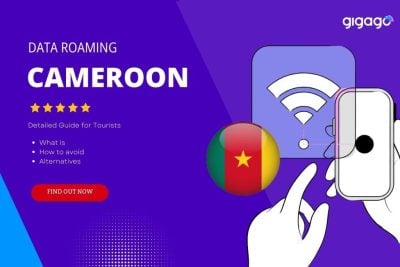! In this handy guide, we’ll explore the ins and outs of choosing the best Cameroon SIM card options, whether you’re leaning towards a traditional SIM or the tech-savvy eSIM.
Use Cell Phone In Cameroon: How To Do It?
Exploring the vibrant landscapes of Cameroon becomes effortless when you know how to effectively use your cell phone. This guide offers practical tips and essential insights for travelers looking to stay connected and make the most of their mobile devices in Cameroon.
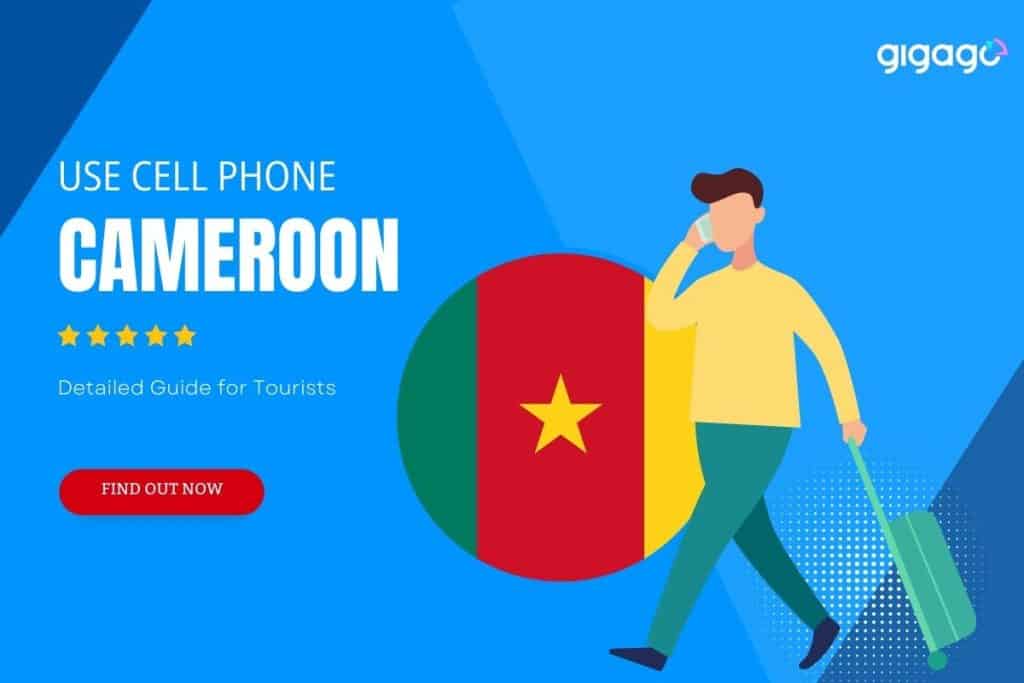
In this article
I. Highlights of Phone Compatibility, Frequencies, and Networks in Cameroon
Heading to Cameroon? Let’s get to know how to use your cell phone in Cameroon once you arrive. In Cameroon, staying connected isn’t just about convenience; it’s about soaking in the vibrant culture and navigating this beautiful African country with ease.
First things first, Cameroon loves its GSM network. This is great news if you’ve got a modern smartphone, as most of them are GSM-friendly. The key frequencies here are 900 MHz and 1800 MHz for GSM. If your phone is compatible with these, you’re all set for smooth calls and texts.
But what about the internet? Cameroon’s got you covered with 3G mostly on the 2100 MHz band. If you’re someone who can’t live without quick internet, check if your phone supports 4G on 1800 MHz (Band 3). This will keep your social media feeds buzzing and your Google Maps active as you explore.
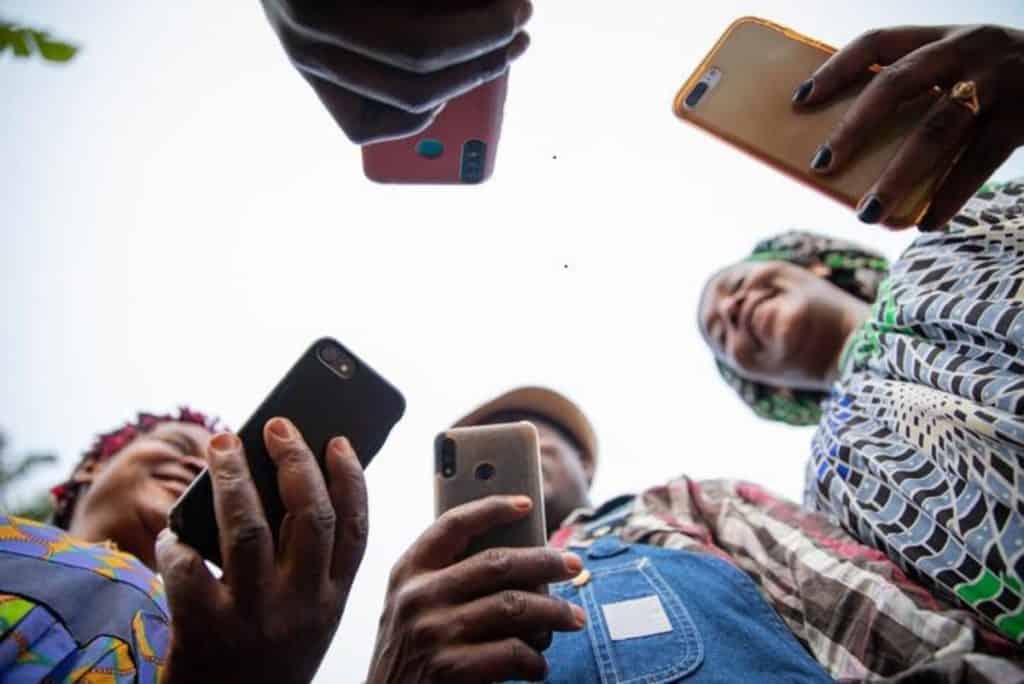
The big names in Cameroon’s mobile network game are MTN Cameroon and Orange Cameroon. They’ve got a pretty solid coverage net cast over the country, especially in the cities and towns. Whether you’re capturing the hustle of Douala or the scenic beauty of Limbe, these networks will help you stay connected.
So, before you pack your bags, a quick phone check can save you a lot of hassle. Ensure it matches up with these frequencies and network standards. That way, you can use your cell phone in Cameroon without a hitch, sharing your experiences and staying on track as you dive into this diverse and enchanting land.
II. Will My Cell Phone Work In Cameroon?
So, you’re all set for Cameroon and wondering, “Will my cell phone work there?” The short answer is: Yes, most likely! But let’s dig a bit deeper to make sure you’re fully prepared.
Your phone’s compatibility with the Cameroonian networks depends mainly on the network bands it supports. Let’s break it down by the key operators in Cameroon and their frequencies:
MTN Cameroon:
- 3G Bands: B1 (2100 MHz)
- 4G Bands: B41 (2500 MHz)
Orange Cameroon:
- 3G Bands: B1 (2100 MHz)
- 4G Bands: B3 (1800 MHz)
Nexttel:
- 3G Bands: B1 (2100 MHz)
Camtel:
- 3G Bands: B8 (900 MHz)
- 4G Bands: B1 (2100 MHz), B3 (1800 MHz)
Now, what does this mean for you? If your phone can latch onto these bands, you’re good to go. Most modern smartphones, especially those sold in Europe and Asia, are typically well-equipped for these frequencies. However, if you’re coming from North America or have an older phone, you might want to double-check your device’s specs.

Tip: If you're unsure about your phone's compatibility, a quick visit to your phone manufacturer's website or a chat with your local carrier should clear things up.
Advice: Always have a backup plan. Even if your phone is compatible, sometimes technical glitches happen. Keeping a list of local stores where you can get a temporary phone or SIM card can be a lifesaver.
III. Do I Need An International Plan In Cameroon?
Yes, it’s generally a smart move to have an international plan when traveling to Cameroon, especially if you want to stay connected reliably and securely. Relying solely on free Wi-Fi can be a bit tricky, and here’s why:
- Limited Availability: Free Wi-Fi is mostly found in urban areas, particularly in hotels and cafes. In rural or remote areas, it’s much rarer.
- Unreliable Connections: Even where it exists, free Wi-Fi often suffers from poor and unstable connectivity, which can be frustrating if you need consistent internet access.
- Security Concerns: Public Wi-Fi networks are not always secure, posing a risk to your online privacy and data safety, especially when handling sensitive information.
Given these challenges, here are more reliable alternatives:
- Local SIM Card: Upon arrival in Cameroon, purchasing a local SIM card offers access to local rates for calls, texts, and data, which are usually more affordable.
- eSIM Plans: If your phone is compatible, an eSIM is a convenient and flexible option. You can choose a plan that suits your needs and set it up before your trip.
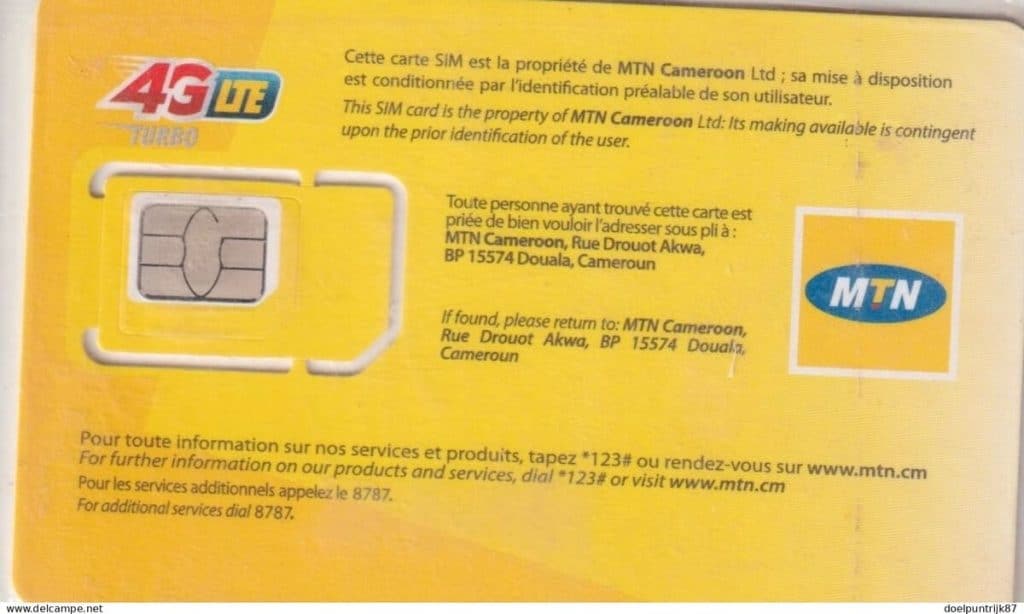
In essence, while free Wi-Fi can serve in a pinch, for a more seamless and secure experience throughout your stay in Cameroon, consider these more reliable connectivity options.
IV. International Plan Options for Tourists in Cameroon
Heading to Cameroon and wondering about the best way to keep your phone connected? You’re not alone. As a tourist, you’ve got a few handy options to choose from, each with its own set of perks and quirks. Let’s dive into the world of eSIM plans, international SIM cards, and Pocket WiFi.
| eSIM Plan | International SIM Card | Pocket WiFi | |
| What’s This? | Think of an eSIM as a digital SIM card. It’s all about getting connected without the hassle of a physical SIM. | This is your classic SIM card but tailored for globe-trotters. | A nifty little gadget that gives you your own traveling WiFi hotspot. |
| Who’s It For? | Perfect if your phone is on the cutting-edge side and supports eSIM. It’s all about tech-savvy convenience. | Ideal if you prefer the traditional route and your phone is unlocked and ready for a new SIM buddy. | Super for those carrying multiple devices or if your phone just says no to eSIMs and new SIM cards. |
| Where to Get One | You can snag an eSIM plan online, either before you fly or once you’ve landed in Cameroon. | Grab one online before your trip or look for them at shops and kiosks once you’re in Cameroon. | You can rent or buy these online before you take off, or find them at rental spots in Cameroon. |
| Upsides | Super easy to set up, no fiddling with tiny SIM cards, and you often get a range of data plans to pick from. | Works with most phones, and you get a mix of local and international calling and data options. | Lets you connect several devices at once and promises a steady internet flow. |
| Downsides | Only works if your phone is eSIM-ready. Plus, not every carrier has hopped on the eSIM bandwagon yet. | Involves the old-school SIM swap and may not fit every phone size (think standard, micro, nano). | It’s another thing to carry and keep charged, and you might have to watch out for data caps. |
So, whether you’re an eSIM enthusiast, a traditional SIM card fan, or all about that Pocket WiFi life, Cameroon’s got you covered. Just pick what works best for you, and get ready to share your African adventures with the world!
V. Will My Local Network Work In Cameroon?
Wondering if your local network will tag along on your Cameroon journey? The answer is most likely yes, but let’s unpack that a bit. If you’re coming from a country with compatible network frequencies (like those in Europe or Asia), chances are your phone will latch onto the Cameroonian networks without much fuss. But here’s the catch: it’s all about roaming.
Roaming lets your phone use local networks, but it often comes with a steep price. We’re talking high costs for calls, texts, and especially data. Picture opening your phone bill post-trip and seeing numbers that give you a mini heart attack. Not the best souvenir, right?
In short, while your local network can work in Cameroon, it’s wise to consider alternatives like a local SIM card, an eSIM, or even Pocket WiFi. These options can save you from the shock of hefty roaming charges and keep your connectivity smooth and budget-friendly.
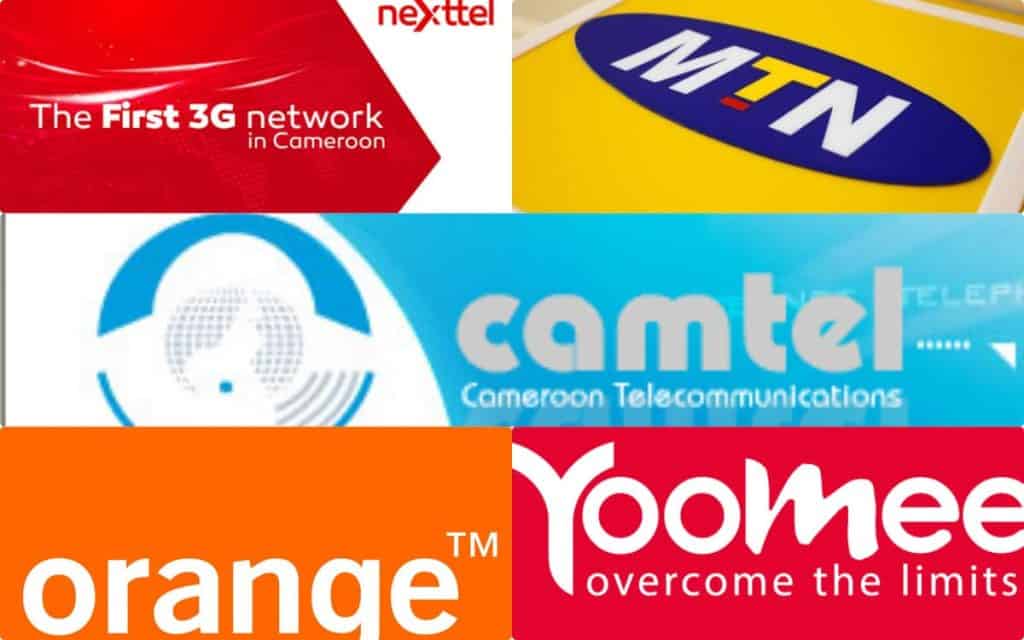
VI. Gigago eSIM – An Alternative For Internet In Cameroon
If you’re hunting for a hassle-free way to stay online in Cameroon, Gigago eSIM is a game-changer. Here’s why this nifty little digital SIM is grabbing the spotlight:
Advantages of eSIM:
- No Physical SIM Required: Say goodbye to fumbling with tiny SIM cards. eSIMs are embedded in your phone, making switching plans as easy as a few taps on your screen.
- Instant Connectivity: Once you land in Cameroon, you’re just a few clicks away from being connected. No more hunting for SIM cards at the airport or local stores.
- Flexibility and Variety: Whether you’re a light browser or a heavy streamer, eSIM plans come in all shapes and sizes. You can pick a plan that matches your internet appetite perfectly.
- Keep Your Number: With an eSIM, you keep your usual number active for calls and texts, while using data from the eSIM – the best of both worlds!
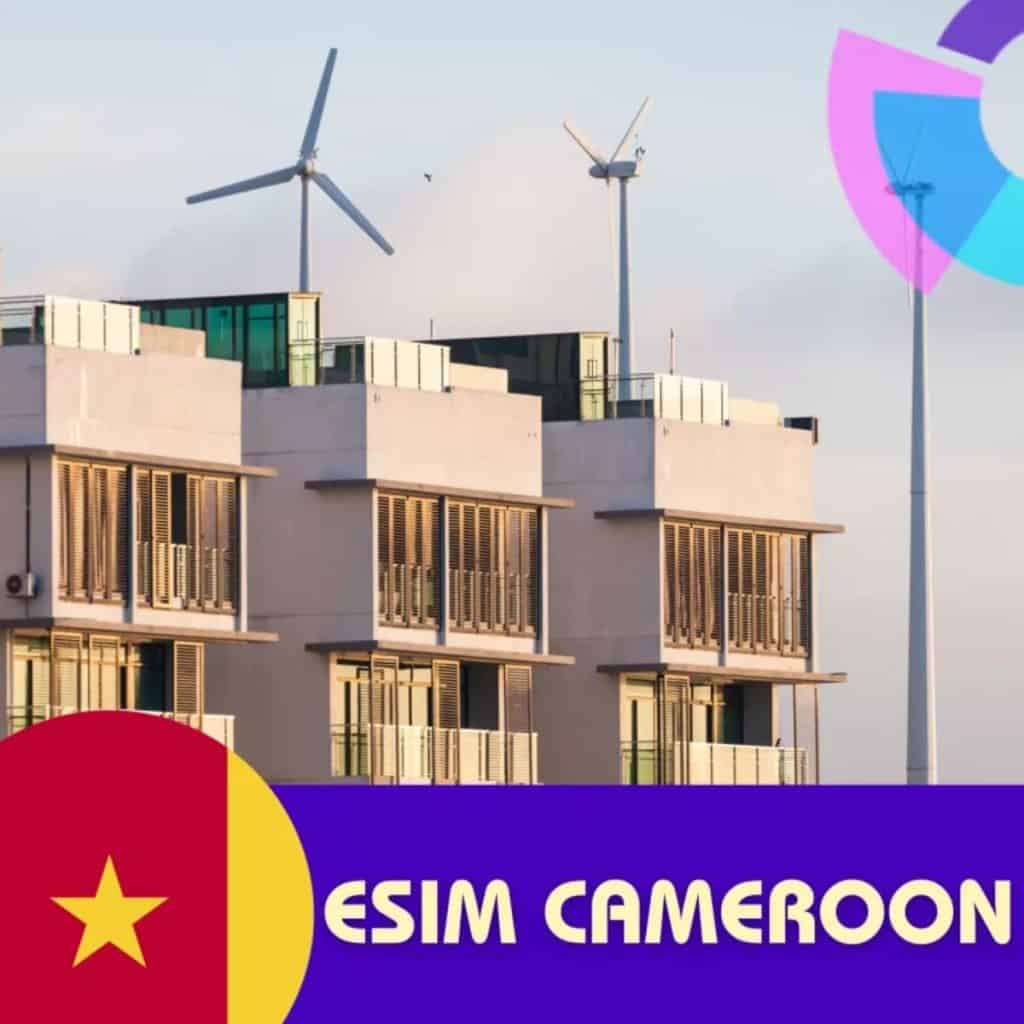
Choosing the Right eSIM Plan:
When it comes to selecting the ideal eSIM plan with Gigago, think about your internet habits. Are you constantly uploading your travel pics, or do you just need maps and occasional browsing? Gigago offers a range of plans, so you can choose one that fits your data needs and budget. Also, consider the length of your stay in Cameroon – there’s no point in paying for more than what you’ll use.
VII. Extra Tips To Use Your Cell Phone in Cameroon
- Power Adapter: Ensure you have a suitable power adapter for Cameroon’s electrical outlets.
- Battery Pack: Carry a portable battery pack for on-the-go charging.
- Data Usage: Monitor your data usage to avoid overage charges, especially if you’re not on an unlimited plan.
- Local Apps: Download local apps for navigation, food delivery, or tourist information.
- Emergency Numbers: Save local emergency numbers in your phone.
VIII. FAQs
Can I buy a local SIM card easily in Cameroon?
Absolutely, SIM cards are readily available at airports, stores, and kiosks, especially in urban areas.
Is English widely understood in Cameroon for tech support?
English is an official language, but the level of fluency varies. In major cities, finding English-speaking assistance is more likely.
Are international credit cards accepted for purchasing mobile plans?
Generally, yes, especially in larger cities and at airport kiosks. However, having some local currency can be handy for smaller outlets.
How reliable is mobile network coverage outside major cities?
Coverage is robust in major cities and towns but can be spotty in remote areas. It’s advisable to check the specific coverage maps of local operators.
Is it better to use Wi-Fi or mobile data in Cameroon?
Mobile data is more reliable for traveling, as Wi-Fi can be limited to certain areas like hotels or cafes. For extensive use, consider getting a data plan.
IX. Conclusion
In summary, there’s no sweat to use cell phone in Cameroon with a little preparation. Whether it’s opting for a Gigago eSIM for hassle-free internet access, carrying a power adapter suited to Cameroon’s outlets, or choosing a cost-effective data plan, these considerations ensure you stay connected and navigate with ease. With these tips and information, you’re all set to explore the diverse and captivating landscapes of Cameroon, sharing your journey every step of the way.
